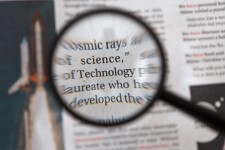Technology: rights or responsibilities? - Part IX
By Dr. Andy Farnell
Back to Part I
Back to Part II
Back to Part III
Back to Part IV
Back to Part V
Back to Part VI
Back to Part VII
Back to Part VIII
Tracing tech in my own life
I think that everyone has a different and personal relation to technology. It is not an objective thing that's "out there", but a history of experiences. That means we can't really point a finger and talk about "technology" as an object. It also means our sense of rights and responsibilities around it differ.
So who the hell am I to be talking about this subject of technology rights and responsibilities anyway? This part traces my own personal relation to technology.
I was born in the year humans walked on the Moon and the first Internet packet crossed a wire. We were promised the "space age". Of course I am neither the first nor last to be born into an epoch of self-stroking fantasy. Most of the puff and bluster my generation endured came out of Cold War chest-beating.
As a five year old I discovered electronics. At 7 I had a soldering iron and built radio transmitters, security alarms, "lie detectors" and musical synthesisers. Technology was what I owned. Raised by experienced military engineers my take on things was undoubtedly biased, but sceptical even as a child I endeavoured to make my own path. What was impressed on me by men who had first hand knowledge of horrors and fighting fascism, was how badly things could be used "in the wrong hands".
By 9 I was as sure as any kid can be that this was the path of righteousness. I believed that science and technology were synonymous with truth and goodness. My generation were going to bring light to the world. Even our teachers told us so. They still tell kids that today.
Today, I find myself as a mature person wondering why many, if not most of the promised "grown-up" benefits of the Internet and affordable computers failed to materialise. Some appeared, and then were lost. Or they created rebound side-effects that have eclipsed the original benefits. Somewhere between 1990 and 2010 we certainly had an opportunity. The era of the Arab Spring and Occupy were pregnant with hope. As a PhD in computer science living in the country that invented computers, I cannot myself afford any of the technological luxuries I played a part in creating.
In 2024, it's clear that the current younger generations, Y, Z and Alphagen, feel betrayed by those who came before them. Perhaps they do not appreciate how much my own generation who built all this stuff also feel disappointed. Sold-out by what the world did with what we gave you. In some ways it hurts more because we saw the promise die. We believed in The Internet as liberation, a spark of "viral democracy" born in a DARPA lab, to be wielded against tyranny around the world. If we could just get those savages to sing from our hymn sheet there would be "no more wars".
Tech is no linear, monotonic progression. For commercial reasons many great things are quite obviously held-back, buried, and then exhumed from the graveyard in a continual cycle of necromancy and cannibalism. Innovation has stalled and been replaced by clownish pseudo-advances that serve the fake model of "capitalism" (clue: it isn't) that we are told runs the world.
While I had some fun in the 90s playing computer games, and enjoyed the giddy ecstasy of communication at the turn of the century, to sum-up so far I think it would be fair to say that my life between 1969 and now has been witness to really quite moderate advances eclipsed by significant social decline. It is incomparable to that of my grandfather's generation, who emerging from the golden era of fundamental non-linear physics saw the world change beyond all recognition. I think to live between 1920 and 1950 must have simply been terrifying.
Perhaps we are lucky to live in "stable times", but when the jury return a verdict on the first quarter of the 21st century I think it will be "Guilty of stagnation and consolidation of toxic power".
On a more ordinary level, I personally feel technology has made me less "in touch" with people in my life than in the past despite having more real friends and colleagues than ever. By making us more legible to each other it's made us seem less valuable to each other.
I make a special effort to meet in person, even if that means walking miles in the rain. Sometimes those moments in the rain, alone without a phone, are the most precious and memorable spaces for thought. I keep verbally agreed appointments. I go to actual pubs and restaurants, to church and other meetings. I do not surrender my life to a "smartphone". I use cash with which I can tip staff and gift to the needy. But that all requires real effort just to live well and properly. I even wrote a little book about it to try telling people you can live comfortably this way, it's okay and has many benefits. It creates space to enjoy technology in wonderful, different ways.
On another note, I feel that technology has made me and others less free. Although I forego the enchantments of smartphones, build my own computers and am myself greatly empowered by knowledge, life feels more controlled. That is certainly a societal shift, not a factor of ageing. As a rule one feels liberated by maturity.
For example; there are less places to take a nice walk that aren't owned by some paranoiac who installed cameras on every pillar and post. Schools look like carceral gulags, surrounded with razor-wire and cameras. Kids don't play any more. The curious and adventurous childhood I had in the 70s and 80s would be impossible now. We've been on a slow descent toward authoritarianism for 50 years, with ever more to fear, more health and safety barriers. And yet, with no irony, everyone feels less safe.
Despite so much potential connection I feel less included and more marginalised in a world fragmented and torn by technological polarisation, walled gardens, fiefdoms and tech empires where I have no home or allegiance. Despite being in my intellectual prime, more educated and balanced than at any time in my life, I have less confidence in my ideas. There have never been so many crazy ideas competing for legitimacy, and so many plausible proponents who earn respect and prominence despite being obvious madmen.
Despite my ability to stand in front of any packed lecture theatre, or be naturally at ease in any research laboratory, academia in all its guises feels quite hostile and pointless. Connection feels more dangerous. Higher education is now a racket. The university students who once hung on my words and queued after the lecture to ask questions are gone, replaced by lost bodies who don't seem to know why they are there.
Far beyond mere apathy and ingratitude, I sense anger at me for daring to know things, for being a representative of just another failed generation who want to take money and sell empty promises. I understand. The education system is rotted, something I've grown to hate too. It's an unfit environment for teaching and learning and it cynically takes money from young people knowing how poor their prospects are. It teaches disempowerment and bland conformity.
As a professor I've never demanded "respect", but just not being spat-on by administrators and students in a culture of overt anti-intellectualism would be nice. As I've written so often in the Times Higher, I mainly lay the blame for the fall of universities on corrosive technology, social control media, administrators who want "convenience" before correctness, and greedy US BigTech or "EduTech" companies who've eviscerated the learning space. There is also the evident problem of tepid, cowardly, visionless, vice chancellors - the crisis of leadership at the top of Britain's university system.
The things I "own" in digital space (domains, websites, accounts, currencies, devices) feel less safe. Digital life is at the mercy of arbitrary diktats, administrative errors, system failures, predatory freeloaders and the exercise of unchecked power to exclude, and censor. I have less confidence in the benevolence and competence of authority. And I know I am far from being alone when I say these things. Instead of clear social progress a number of unfortunate side effects of digital tech have blighted society. Their net effect is that we're moving backwards.
Simultaneously some of the genuine societal benefits have been deliberately held-back in order to favour profit. In many ways we have barely advanced beyond the possibilities of electronic commerce, basic communication and governance already evident as long ago as the 1970s. In 1987 I used a global network (nntp) that was basically Twitter, which was not popularised until 20 years later in 2006. By 1992 I was bored with the disturbing lunacy of it. My generation got a sneak preview, and an early warning, of many things that are still struggling to resolve themselves today.
Fast forward to the start of this century… Many people point to the Eternal September as a negative turning point in history. In fact this early boom was a cultural explosion of goodness. Like the 1960's you "really had to be there!" And in a strange parallel to the collapse of the Summer of Love, it was the Dotcom Bubble that destroyed everything as a result of the sheer mindless blind greed of modern financial capitalism meeting digital technology. College drop-outs took and bastardised the creations of much smarter people than themselves and left a wasteland that still persists today. In their minds they were challenging "elites".
The mythology of the garage-geek revolution that Google and Apple typified was never real. Both enterprises, and companies like Facebook, lent on substantial government aid. Recognising the social upheavel of popular tech, government decided to steer it in a more hands-off manner through the creation of Silicon Valley. To this day Silicon Valley maintains its internal working model as a populist, freedom-fighting, self-made project, but it is still true that the investors who pour in money have hardly the slightest idea what they are doing. Mostly their money creates expensive reworks of the same old things. What they realised is that they could reverse the traditional road to power. If tech cannot make money, it can make political capital - and then political capital can make money. They did an end run around government and decided to go straight for control and bypass the whole trust, value and money making stages.
In the last 20 years, by buying up laws and competing companies they have consolidated a lot. Power, not only through technology but through broken laws and institutions, like copyright and patent offices, WIPO, and cyber-bullying courts, make sure that no new alternatives to domination ever emerge. Promising new companies that offer privacy, dignity and technical autonomy to people are shut down by unfair laws that favour established wealth. New ideas are suppressed by misguided regulations designed to curb BigTech power, but which are actually used to protect it. They entrench and normalise corruption as the price of doing business.
Despite the fact that computers have become orders of magnitude faster, smaller, cheaper and more powerful, we've squandered that opportunity by an obvious lack of vision around what we really want computers for. We also squandered the digital literacy of the 1980s and 1990s in lieu of deference to "platforms". Anything "as a service" (XaaS) is the digital equivalent of still living at home with your Mom. Metaphorically she still does your washing (thinking) for you.
Who cares if Intel's 14th generation Gargantubrain super-microprocessor can count all the atoms in a star in a millisecond if it contains a potentially treacherous subsystem that annihilates all trust in it? To me, as a cybersecurity person, adding an autonomous "management engine" with its own memory access and network connection seems like baking the most delicious cake imaginable, and then taking a giant, steaming dump on it before serving. Nobody who designed such a thing ever sat down for one moment and seriously pondered, "Is this what people want?".
It is terrifying to find that of almost everyone I meet who works in technology, very few know Neil Postman's famous "Seven Questions To Ask About Any Technology", which are;
- Q1: What is the problem for which this new technology is a solution?
- Q2: Whose problem is it?
- Q3: What new problems might be created because we have solved the problem?
- Q4: Which people and what institutions might be most seriously harmed by these technological solutions?
- Q5: What changes in language are being enforced by new technologies? What is being gained and what is being lost by such changes?
- Q6: What sort of people and institutions acquire special economic and political power because of the technological change?
- Q7: What alternate uses might be made of a technology?
These should be written on the wall of every primary school classroom on the planet.
The more disturbing thought is that some people at Intel did sit down and think… and they said; "This is going to cost us hundreds of millions to produce and sell, and somehow that's worth it despite that fact that people vocally do not want it." Such motives could only be demonic.
Is it any surprise then that the Intel company disintegrated, losing its market, share price going into freefall and laying off tens of thousands of staff? Maybe if it had focused on the things people want, like the multi-trillion dollar market for secure products amidst massive global demand, that would not have happened. Instead of removing features known to be a major security threat Intel then tried to force it on people who had explicitly said they don't want it and organised methods of disabling it.
What kind of a company is this? It is a company not motivated by profit or even survival. It is a sick company, afflicted by some kind of virus. Clearly Intel suicidally chose, at the very highest level, to deliberately make insecure products when there is a huge demand for cybersecurity. There is really only one explanation for this and it's why Intel, like Microsoft, is a company that deserves what they get. But not to dwell on US BigTech and it's ever swelling contempt for freedom and democracy. These awful companies are just examples of how something has gone fundamentally wrong with the technology we use.
I think, to put it simply, it's fair to say;
Human beings have lost control of the direction of information technology.
Like finding yourself in a room when you can't remember why you went there, we've forgotten what we wanted a digital world for in the first place. We need a reset; to walk back out and walk in again. We need to switch the Internet off and on again.
Otherwise I think we have succumbed to the creed of "technological determinism" (which include figures like the Unabomber Ted Kaczynski) for whom technology is an "otherly" force beyond reason, a God of the Old Testament variety.
In that twisted, psychologically split belief, it offers only two relations;
Or
- to utterly reject and oppose it in the style of Hitchens' Antitheism or set out to eradicate it.
Not only is this splitting the antithesis of Scientific and Enlightenment philosophy, it invokes a false God and a false choice. Surveillance combined with preformative vanity stands in for a Big Other and is a deformed technology, a grotesque mutant raised to the status of a new "golden calf" by eyes that cannot see. Surveillance is blind. It sees what it wants to see and therefore the only salient question is "What does it want?".
It is a machine concerned with accumulating money and power but without producing goods or offering provision. That is the most "efficient" algorithm. It accumulates power as data for psychological manipulation to then exploit and extract wealth from the population. In doing so it cannot help but flood the world with disinformation and slop, since it has no essentially honest motives or even any agenda at all beyond its own expansion. It is a disease of information, like a computer virus but on a larger scale. Nothing of value is created. Trust and truth is destroyed. To work, it leverages our religious belief in the almighty, punitive, vengeful and irrational Algorithm (god) that affects social domination. Its outcome is total epistemic collapse.
But remember, we created this virus. Back in '69 in that DARPA lab nobody had any idea that it would mutate. But that's the danger with bio-warfare. It escaped the lab and got onto Wall Street.
Here's a poem by Joel Kabakov:
Ground Zero
Here I sit at ground zero
formerly known as a bus stop
waiting for the usual big blue
that takes us to
ground zero
formerly known as the ocean
whose former islands lie beneath the waves
We know there are those
who tried to contain ground zero
way out in an undocumented place
in the desert
Just this once, they said
we'll cut loose a tiny glimpse of hell
at this tiny pin on a map
But that's when ground zero overflowed
it's container
and like a raging river at flood
escaped from high desert to lowlands
country to city
carried on winds and currents
carried in bombs on the bellies of jets
piled on decks of great nuclear carriers
followed by robotic eyes as blips on screens
delivering their deadly pay loads
with every in breath, with every bowl of ionized corn
and bean.
Oh, here comes my bus.
Hence we've entered into a dangerously ambivalent relation with technology where people say crazy things about "inevitability" and "necessary evils". Earlier visions of humane and exploratory progress have faded. We've all become apologists for a system we cannot see past and fear losing as much as we fear having. This is more than the dreary defeatism of Fukuyama's "End of History", it is absolutely playing with the forces of Fascism and collapse (because all fascist regimes are really just prelude to collapse/war). Indeed the term "technofascism" seems to gain more currency with each passing day.
This is what I helped to build for you. You're welcome. Don't all thank me at once!
So what is your personal story of technology? How did it come into your life. What joy and what disappointment has it brought? How do you stand in relation to it, as a slave or as a master? Or as a "disinterested bystander" who pretends it is "neutral" and separate from you? How will you take responsibility for guiding what you are a part of?
Answering my old teachers, "Did you put power into the wrong hands?" then I have to be honest, "Maybe. But they seemed so convincing". Asking my five year-old self "Did you bring light to the world?" I can only respond, "I'm not done trying yet".












